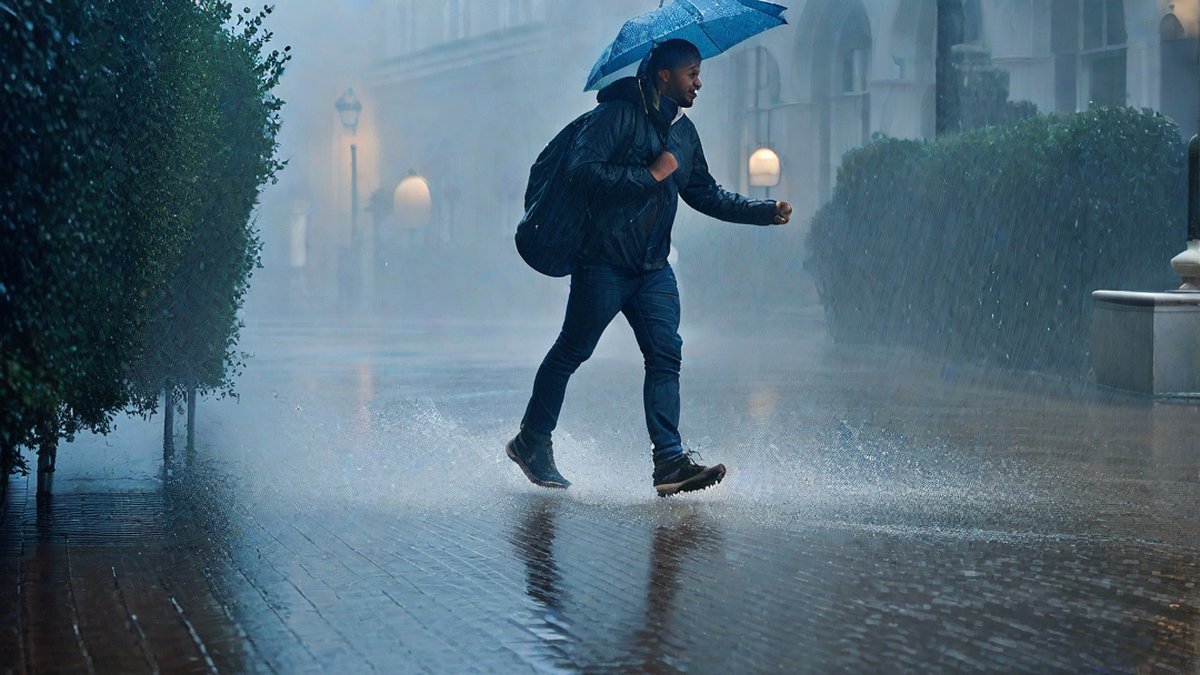As an avid runner and someone who enjoys being outdoors, the question of whether you get wetter running or walking in the rain has always intrigued me. Growing up, I remember my mom often telling me to walk instead of run in the rain, as she believed that running would make me even wetter. However, as I got older and started running regularly, I began to question this belief. So, I decided to do some research and experiments to find out the truth.
The Myth of Getting Wetter While Running
Before I dive into the details, let’s address the myth that running makes you wetter in the rain. The common belief is that running exposes you to more raindrops, which in turn leads to getting wetter. However, this notion may not hold up under scrutiny.
When we run, we create our own “microclimate” as we move through the rain. This microclimate forms a protective barrier of sorts, diverting some of the raindrops away from directly hitting our bodies. Additionally, the faster movement associated with running can actually help to shed water off our clothes more effectively compared to walking.
The Science Behind Raindrops and Running
To understand why running may not make you significantly wetter than walking in the rain, it’s important to consider the physics of raindrops. Raindrops fall at varying speeds depending on their size, but on average, they descend at a speed of around 9 to 18 miles per hour.
When we walk, our average speed is usually around 3 to 4 miles per hour, while running increases that speed to around 6 to 10 miles per hour. Considering these speeds, it becomes clear that the difference in velocity between walking and running is relatively small compared to the speed at which raindrops fall.
Furthermore, the size of raindrops plays a role. Smaller raindrops, which are more abundant during light rain, are less likely to soak us regardless of whether we are walking or running. Larger raindrops, on the other hand, have the potential to make us wetter due to their increased mass and momentum. However, the difference between walking and running velocities is not significant enough to significantly affect the amount of large raindrops hitting our bodies.
Personal Experiments and Observations
To put this theory to the test, I conducted a personal experiment. On two separate occasions, I walked for 10 minutes in the rain, and on two other occasions, I ran for the same duration in similar rainfall conditions.
First, during the walking experiments, I noticed that raindrops fell directly onto my head, shoulders, and upper body, where I had minimal movement. It seemed like the raindrops had more time to accumulate on those areas, making me feel wetter overall.
Next, during the running experiments, I observed that raindrops landing on my upper body were quickly shed off due to the increased movement and airflow. However, my lower body, especially my legs, seemed to get wetter faster while running compared to walking. This could be attributed to the increased exposure of my legs to the rain, as they moved more rapidly through the raindrops.
Conclusion: Running vs. Walking in the Rain
Based on my personal experiments, observations, and the understanding of the physics behind raindrops, it seems that running does not necessarily make you significantly wetter than walking in the rain. Both activities expose you to the same raindrops, and the slight difference in velocity between walking and running does not have a significant impact on your overall wetness.
Ultimately, whether you choose to run or walk in the rain should depend on your personal preference, comfort, and safety. Running in the rain can be invigorating and may provide a sense of adventure, while walking allows for a more relaxed and leisurely experience.
So, the next time it starts to drizzle, don’t hesitate to lace up your running shoes or grab an umbrella and enjoy the beauty of nature, whether you choose to run or walk in the rain.

